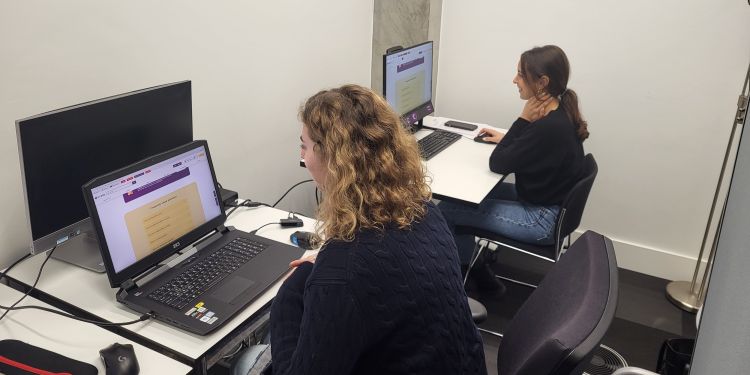Research project
Finding Healthy Online
- Start date: 22 January 2024
- End date: 22 July 2024
- Value: £50,000
- Partners and collaborators: Ocado Retail
- Primary investigator: Dr Sally Moore
- External primary investigator: Dr Yael Benn
- Co-investigators: Sushila Pisano
- External co-investigators: Mohammadali Charoosaei, Orla Peters, Charlie Parker, Ayman Hafiz

A project to share and initiate research-industrial insight on how online supermarket food environments can support healthier more sustainable diets for consumers.
Summary
To support website design that facilitates healthier and more sustainable food purchases, the project aims to build an academic-industry relationship with nutritionists, psychologists and a digital food retail space (Ocado Retail).
Together, we will co-design and conduct initial research to explore how consumers interact with features of this commercial online food environments, and how these environments influence consumer’s food choices.
Novelty
To improve ecological validity and overcome some limitations of previous experimental research, the current project investigates consumers’ purchases and website use in a real-life online supermarket environment.
We collect eye-tracking data and detailed qualitative insights and analyse these new datasets to understand how this environment influences consumers’ navigation behaviour and food choices.
Project aims
- To establish a strong and lasting new industry-academic partnership.
- To conduct initial research exploring real-world consumer interactions with online retail food environments and to develop realistic pathways for website designs that encourage and support consumers in making healthier choices when shopping online.
Data and variables
The project results in a large data set including quantitative and qualitative data.
The quantitative data includes general details about the shopping (eg how long participants spent on their shopping, how many products they purchased, how much money they spent, how many products they purchased spontaneously) and more specific details from the eye-tracking (eg how many fixations they had on pictures, price or nutrition, how long they looked at these details and what type of products they fixate on.
The data includes the exploration participants took – how many products they reached through the search function, how many by navigating through the categories and how many through pages such as the 'special offers'.
Qualitative data includes verbal descriptions of participants’ journeys in their shopping trips. While we may not be able to release full transcripts for privacy reasons, we can extract specific information as needed.
Publications and outputs
Research outputs include:
- co-authored project-focused publications
- presentation of findings at the American Society for Nutrition 2024 Conference
- two public engagement events in Manchester and Leeds
- end-of-project forum at the Ocado Retail headquarters
- dynamic dissemination material including a project one-pager (PDF).
- Leeds Instittute for Data Analytics – Finding Healthy Online: What the eyes reveal

Institutions & Team
- University of Leeds, School of Food Science and Nutrition: Dr Sally Moore (PI), Sushila Pisano (Project Coordinator)
- Manchester Metropolitan University, School of Psychology: Dr Yael Benn (Co-PI), Orla Peters (Research Assistant), Mohammadali Charoosaei (Research Assistant), Ayman Hazif (Research Assistant)
- Ocado Retail: Charlie Parker (Senior Nutritionist)
Funding sources
The Consumer Lab, funded by the Biotechnology and Biological Sciences Research Council (BBSRC), with support from the Department of Food, Environment and Rural Affairs (DEFRA), Innovate UK and the Medical Research Council (MRC), grant reference BB/X010805/1. In Partnership with Ocado Retail, UK.
The Consumer Lab funding announcement.
Funding period
- Start date: 12 February 2024
- End date: 12 August 2024



